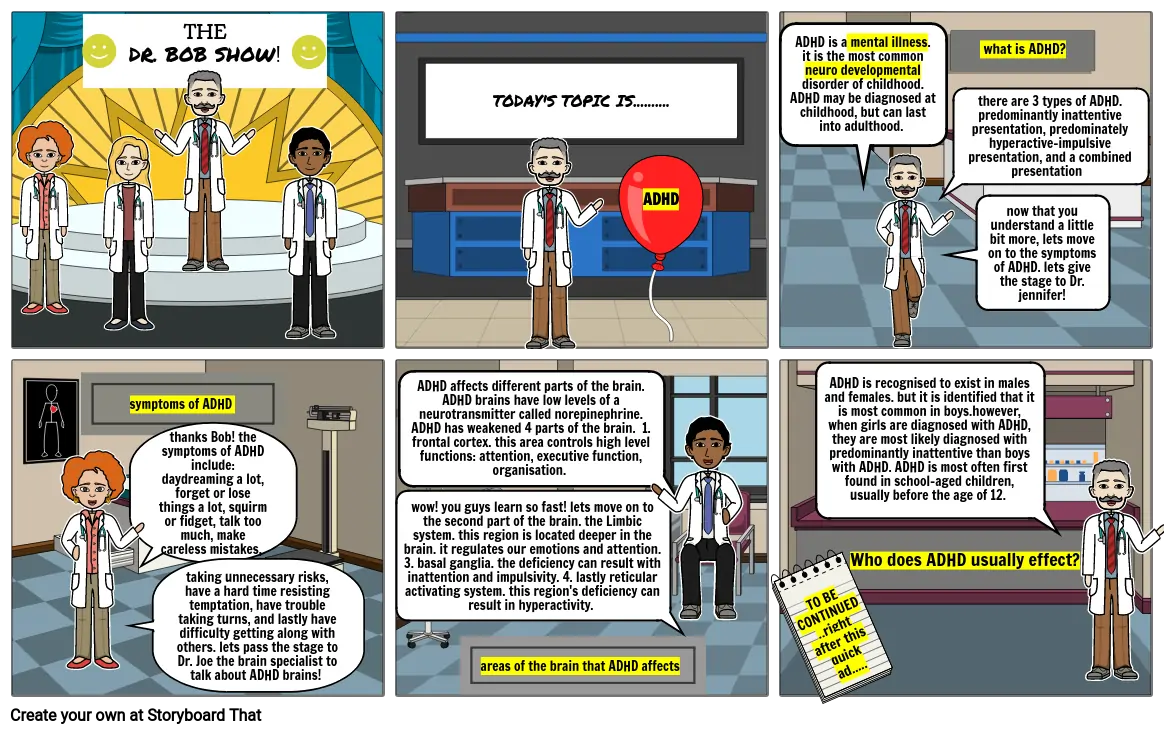Dr. Bob show ADHD comic strip part 1

Storyboard Descripción
part 1
Texto del Guión Gráfico
- THEDR. BOB SHOW!
- TODAY'S TOPIC IS..........
- ADHD
- ADHD is a mental illness. it is the most common neuro developmental disorder of childhood. ADHD may be diagnosed at childhood, but can last into adulthood.
- there are 3 types of ADHD. predominantly inattentive presentation, predominately hyperactive-impulsive presentation, and a combined presentation
- now that you understand a little bit more, lets move on to the symptoms of ADHD. lets give the stage to Dr. jennifer!
- what is ADHD?
- symptoms of ADHD
- taking unnecessary risks, have a hard time resisting temptation, have trouble taking turns, and lastly have difficulty getting along with others. lets pass the stage to Dr. Joe the brain specialist to talk about ADHD brains!
- thanks Bob! the symptoms of ADHD include: daydreaming a lot, forget or lose things a lot, squirm or fidget, talk too much, make careless mistakes,
- wow! you guys learn so fast! lets move on to the second part of the brain. the Limbic system. this region is located deeper in the brain. it regulates our emotions and attention. 3. basal ganglia. the deficiency can result with inattention and impulsivity. 4. lastly reticular activating system. this region's deficiency can result in hyperactivity.
- ADHD affects different parts of the brain. ADHD brains have low levels of a neurotransmitter called norepinephrine. ADHD has weakened 4 parts of the brain. 1. frontal cortex. this area controls high level functions: attention, executive function, organisation.
- areas of the brain that ADHD affects
- TO BE CONTINUED..right after this quick ad.....
- Who does ADHD usually effect?
- ADHD is recognised to exist in males and females. but it is identified that it is most common in boys.however, when girls are diagnosed with ADHD, they are most likely diagnosed with predominantly inattentive than boys with ADHD. ADHD is most often first found in school-aged children, usually before the age of 12.
Más de 30 millones de guiones gráficos creados

